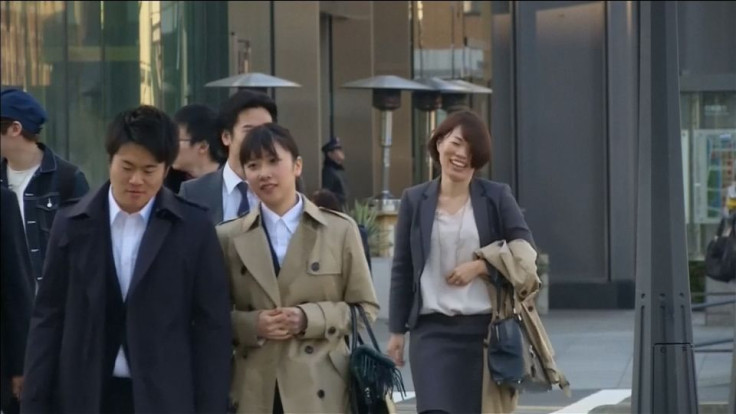Why Japan’s ‘Womenomics’ Isn't Working

Japan is greeting International Women's Day with some wishing there was more to celebrate. In spite of a push to get more women into leadership, the nation's movers and shakers are still mostly male. Eve Johnson reports.
Video Transcript:
On the surface, a tech-savvy, futuristic, forward-looking nation.
But when it comes to women working, Japan is stuck in the past.
The World Economic Forum ranks Japan 101 out of 145 nations in gender equality.
Prime Minister Shinzo Abe has vowed to get more women into leadership at the office and in politics.
But Reuters' correspondent Leika Kihara says Japan's movers and shakers are still predominantly men.
"The people I meet, the senior policymakers and the lawmakers, aren't really used to having women come over as a journalist to ask questions. So sometimes what happens that is I go with a male co-worker to an interview, and they don't give me name cards or they just feel I am just an assistant."
One of the nation's few female senior bankers, Kathy Matsui of Goldman Sachs, has been on the front lines of the battle.
"The bottom line is, if you want your economy to grow, you really need to run on both legs."
Matsui says Japan's had some success in getting more women working, although they're mostly doing low-level jobs.
And that means insecurity for people like single mother Izumi Sato.
"I can just about make ends meet financially," she says, "but I still feel very insecure."
The government is making some real changes.
Starting in April, companies with more than 300 employees will be have to set public targets for improving gender equality.
Many working women hope that even if policy comes to late to help them, at least it means a brighter and more secure future for their daughters.
© Copyright IBTimes 2024. All rights reserved.





















